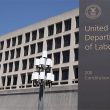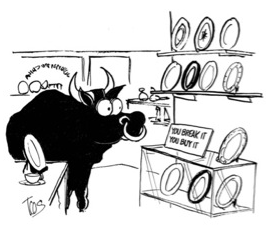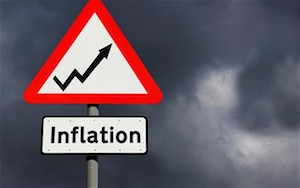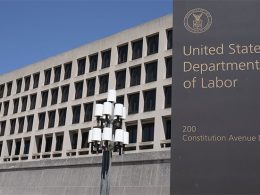by Ben Carlson, A Wealth of Common Sense
Anthony Scaramucci and team have done a nice job resurrecting the old Louis Rukeyser show, Wall Street Week. The guests have all been top notch. On a recent episode, legendary hedge fund manager Leon Cooperman shared some of his career background along with his thoughts about the markets:
In particular, I was interested in Cooperman’s take on the four reasons we typically see a bear market in stocks:
1. Stocks anticipate an oncoming recession
2. Euphoria and exuberance
3. An unpredictable geopolitical event
4. The Fed takes away the punch bowl by raising interest rates
Something I’ve heard over and over again lately is that stocks won’t have another bear market until we see a recession, which could be a few years away. It could be dangerous to rule completely out a bear market for this reason alone. As Jeremy Siegel showed in Stocks For the Long Run,, since World War II, there have been five bear markets with losses in excess of 20% that have occurred outside of a recession. It’s possible we won’t see another bear market until the economy slows, but just because something is rare doesn’t mean you should automatically rule it out.
The other takeaway — and I’m stating the obvious here — predicting bear markets is hard. How many people or firms do you know that have a good track record of predicting the four signs that Cooperman looks for to know if there’s a bear market coming?
People have been predicting a double dip recession since about a month after the last one ended. Investor sentiment is becoming more and more difficult to grasp these days considering computers do so much trading, and the bulk of the stock market is controlled by professional investors, not mom and pop anymore. Everyone thinks they know the current state of investor emotions, but it’s just so complicated to accurately gauge investor psychology. Even if you could predict geopolitical events ahead of time, no one can forecast how the markets will react to them. While the Fed will have to raise interest rates eventually, no one knows the path or timing of those moves. The end of quantitative easing was supposed to signal the start of market volatility. Instead, the market has shrugged it off like nothing happened.
Every investor would love to be able to sidestep the next correction or bear market. We’re averse to losses, so everyone becomes infatuated with predicting the next market downturn. Instead of constantly trying to guess which direction the next 10-20% move in the market will be, investors would be better served by accepting losses with equanimity and having a plan in place to deal with the inevitable drawdowns.
It’s a thought-provoking exercise to try to forecast the next catalyst that will move the market one way or another, but it’s not useful. No one can predict the when or the why with any consistency. No one has control over these four signals anyhow, so most investors would be wise to let go of their dream of predicting when the next one will hit.
Check out the rest of the show’s episodes here:
Further Reading:
Delivering Alpha & Accepting Beta
How to Preserve Capital in a Bear Market
Subscribe to receive email updates and my quarterly newsletter by clicking here.
Follow me on Twitter: @awealthofcs
Copyright © A Wealth of Common Sense
















